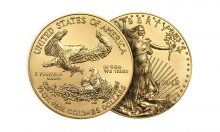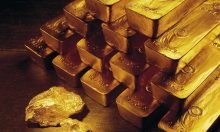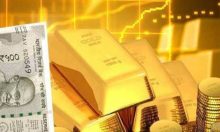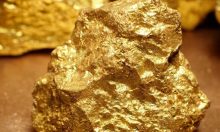
How to Sell Gold Coins for Cash
How to sell gold coins for cash.
Gold has been an important asset for many years. This precious metal is sought-after by many for its value and out of a need to diversify their investment portfolios. It acts as a store of value, but it is also a highly speculative asset that connects to both currencies and interest rates. Because of these qualities, it only makes sense that people in possession of the metal in some shape or form usually try to sell it to generate a profit.
In recent months, gold prices reached record highs. As such, those who have gold coins, jewelry, and other items are looking to take advantage of high prices and sell these items. In August 2020, for the first time in history, gold prices managed to surpass $2,000 per ounce. Because of this milestone, many are rushing to sell their gold coins, hoping to make a substantial amount of cash.
This article will explore how one can sell their gold coins in exchange for cash.
The difference between selling coins and other items
First and foremost, there is a misconception that must be addressed, which is what sets selling gold coins apart from selling other gold items. In reality, selling gold coins is a distinct process from that of selling gold jewelry, like a gold engagement ring or wedding band. There are a wide variety of merchants that purchase gold jewelry. For instance, if someone has a gold wedding band that they are looking to sell, they are typically able to sell it online. Likewise, they can sell it offline to a local jewelry store or even a pawn shop. Whether online or offline, the seller can generate a profit.
Gold coins are a different story in that they are a comparatively more niche item. To elaborate, gold coins are a specific type of gold bullion; these coins are commonly referred to as “bullion coins.” For this reason, they are often seen as an investment or store of value instead of a conventional gold item for consumers.
What to remember when selling
For those who are interested in making some cash by selling gold coins, it is essential that they make sure to look into what their options are. Moreover, they must only conduct business with a legitimate coin dealer. When it comes to selling coins, there is a chance that a scam artist or a pawn shop will take advantage of a naive private seller. This is especially the case if the seller is oblivious to just how much the coin in their possession is worth.
Because of this, it is recommended for those showing an interest in selling their coins to educate themselves on the best practices. Being knowledgeable about their coin’s value before selling to a dealer provides better chances of walking away satisfied with their transaction.
Understanding the value
Gold coins are, above all else, a commodity. Therefore, many trade them at a fixed price via bullion dealers and various other trading platforms.
A majority of gold bullion coins are created and distributed by national mints. A notable example is the U.S. Mint, which issues the American Eagle coins in four different metals: gold, silver, platinum, and palladium. If someone knows the type of gold coins that they have, then they can look them up online through a gold bullion market. This way, they can see how much they are selling for at that given time.
What every seller must remember is they must never put their coins up for sale until they fully understand what their value is. What many do not know is price and value are two different things. Price is a measure of what a seller would pay a dealer for that coin. Value is the amount that one would get should they decide to sell it themselves.
Determining the value of a seller’s coin is not overly straightforward. Generally speaking, there may be no conclusive number. With that said, the coin’s date, condition, and mintmark will provide clues towards figuring out the value. Furthermore, sellers can weigh their gold coins to figure out their AGW (Actual Gold Weight) and then multiply that number by the gold’s current value per ounce. Doing so will allow them to acquire their melt or scrap value, which in turn will help determine the lowest price the seller should accept. It would be smart to turn down anything that is significantly below the melt value.
One should take all of the other factors into account when determining the base price. Such factors include the rarity or desirability of the coin. Afterward, sellers can separate their collections depending on low, medium, and high coin values.
Where to sell
As soon as someone has an idea of what their coins’ value is, they can think about how they will sell gold coins and other items. Similarly, they start to question who they will be selling them to.
- Local dealers: It would be smart to evade junk dealers and pawn shops. Instead, look for respectable local dealers that advertise themselves as being coin specialists. The best route to take would be to look at members of groups like NGC or PCGS.
- Selling directly to collectors: Collectors are knowledgeable about the value of coins and have a keen eye for rare or desirable items. If a seller knows that they have something special in their possession, then a collector will likely pay handsomely for it.
- Coin shows: Local coin shows are an ideal location to find well-informed dealers who have a talent for recognizing value when they see it. Sellers should contact their community’s coin club for information regarding future coin shows.
- Auctions of rare coins: If a seller has rare coins, auctions drawing in serious collectors may be the right route to take. Competition at these events tends to be cutthroat, which increases prices. Some rare coins end up selling for thousands – sometimes millions – of dollars apiece.
- Online coin dealers: These companies specialize in valuing coins, as well as conducting efficient and fair transactions. If someone is interested in selling gold coins, they should select an online dealer whose expertise is in precious metals.
eBay is another popular option. While this may be a convenient way to sell coins online, it is not the most desirable outlet. There may be an ignorant pool of buyers who could potentially make it difficult to command a reasonable price. Moreover, there are high seller fees. Sellers may reserve this option for coins with a more modest value.
Finding the right coin dealer
There is an array of qualities that one should seek out in local or online coin dealers. Basic honesty is important, no doubt, but they need to prove themselves trustworthy in other ways. Below are some traits to check for:
- Knowledge: Do the dealers make an effort to teach their clientele? Moreover, do they offer guides and various other useful, authoritative documentation?
- Character: Inquire about testimonials from past satisfied sellers. If someone has their eyes on an online dealer, they should do research on coin forums.
- Selling guarantees: What kind of selling guarantee, if any, can one gain from the dealer?
- Skill in valuing rare gold coins: Admittedly, not all dealers have the essential equipment and expertise needed for evaluating the rare gold coins’ value.
- Type of value offered: Go with a dealer who considers the fair value of coins rather than one who will only provide the melt value or a fabricated value.
Once the seller understands the value of their coins and chooses the best coin dealers that will pay the highest prices, they can finally start to sell their gold coins.
Avoid brick-and-mortar jewelry stores and pawn shops
Selling precious metal items to a pawn shop is not the wisest route to take. It is true that this particular procedure is fast and efficient, but sellers will likely get a mediocre price for their gold.
There are three primary reasons why this is the case. The first stems from the fact that pawn shops need to bring in a hefty profit from every sale. In order to generate a profit after salary, rent, utility, and other expense payments, they will frequently offer a lower-than-market price for gold coins.
The second reason is that the staff at a pawn shop are not exactly experts in trading precious metals. Consequently, they will probably fail to recognize a gold coin’s value. For sellers, this results in a lower offer, as well as a poor investment return.
The third reason is that a majority of pawn shops and jewelers will mostly concentrate on scrap gold and gold jewelry. Generally speaking, gold coins are investment gold, so they receive different treatment and regularly trade at a considerably smaller markup. A pawn shop or local jewelry store might be a decent enough option if one needs to urgently sell their gold coins. However, there are much better options out there for those who intend on getting the best price for their gold.
Make an investment in GoldCoin
Now that you know more about gold. Isn’t it a perfect time to buy today?
Purchase GoldCoin




